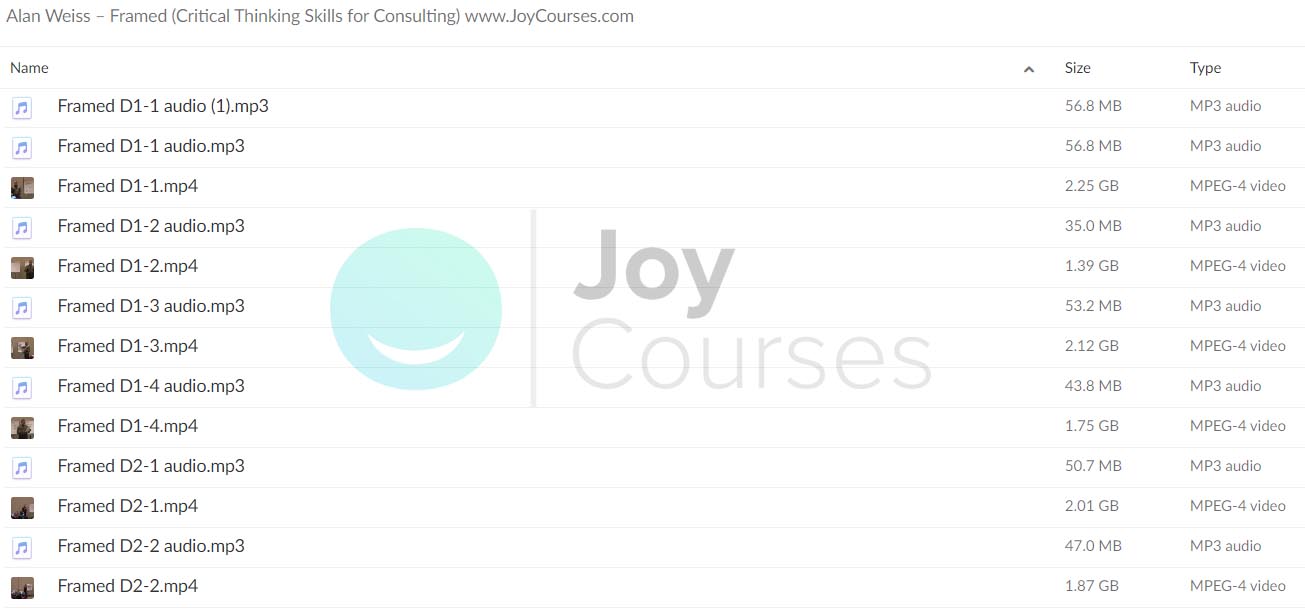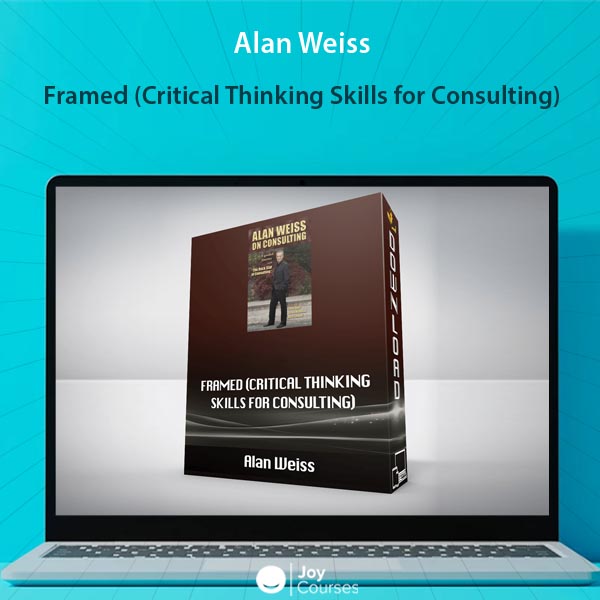Description
Download Proof | Alan Weiss – Framed (Critical Thinking Skills for Consulting) (11.73 GB)
![]()

Alan Weiss – Framed: Critical Thinking Skills for Consulting
In consulting, critical thinking is the foundation for providing sound advice and professional guidance. For million-dollar consultants, mastering these skills is crucial to delivering high-value insights and solutions to clients. In particular, framing—a vital, yet often overlooked component of critical thinking—can transform a consultant’s approach and outcomes.
Understanding Critical Thinking for Consultants
Critical thinking involves the ability to assess, analyze, and interpret information in a structured manner to make informed decisions. For consultants, it means navigating complex business challenges, identifying key issues, and providing actionable recommendations. Among the various critical thinking skills, framing stands out as a powerful tool for shaping how problems are perceived and solved.
The Power of Framing in Consulting
Framing refers to the way in which situations or problems are presented and understood. A consultant’s frame influences their analysis, decision-making, and the options they recommend. Often, professionals unconsciously adopt frames based on biases or assumptions, limiting the range of possible solutions. Effective consultants, however, deliberately frame issues in ways that encourage comprehensive analysis and optimal outcomes.
Becoming Deliberate in Framing
To enhance their critical thinking abilities, consultants must consciously adopt deliberate framing techniques. This means:
- Challenging existing frames: By questioning initial assumptions and biases, consultants can uncover hidden opportunities and risks.
- Using metaphors and analogies: These tools allow consultants to draw parallels and reimagine problems from new angles, leading to creative solutions.
- Seeking diverse perspectives: Engaging with different viewpoints helps avoid tunnel vision and promotes more effective problem-solving.
By mastering these techniques, consultants can offer their clients innovative, well-rounded advice.
Developing the Framing Skillset
Building the ability to frame effectively requires ongoing training and practice. Consultants should focus on:
- Identifying biases: Learning to spot cognitive biases that cloud judgment.
- Exploring alternative frames: Testing different ways to view a problem to discover the most productive angle.
- Practicing flexibility: Adapting frames based on new information or changing circumstances.
This process enhances a consultant’s critical thinking, leading to more effective, actionable recommendations for clients.
Framing as a Path to Thought Leadership
For those seeking to stand out as thought leaders, mastering the art of framing is essential. By consistently offering fresh perspectives and innovative approaches to problem-solving, consultants can build a reputation for thought leadership. Effective framing sets consultants apart, showcasing their ability to see what others might overlook and provide clients with unique, high-impact solutions.
Conclusion: Critical Thinking and Framing for Success
To become a million-dollar consultant, developing critical thinking skills—especially the talent for framing—is crucial. Consultants who master this skill will not only solve problems more effectively but also position themselves as trusted advisors and thought leaders. By investing in the development of framing abilities, consultants unlock their potential to deliver greater value to clients and achieve long-term success in the industry.













